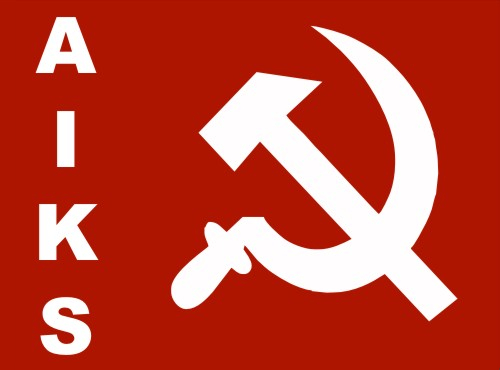The Long March of the Dispossessed to Become a Reality in November
Ten roads lead to Delhi and in November these will become a sea of humanity as lakhs of farmers, workers, adivasis, dalits, muslims, youth, women–in short, the dispossessed of India—will march on Delhi in unity as a ‘nation for farmers’ insisting on a three week special session of Parliament to discuss nothing else but agrarian distress.
Over four lakh farmers have committed suicide in 25 years, with the numbers increasingly steadily over the years. And as All India Kisan Sabha president Ashok Dhawale told The Citizen, thousands of Adivasi and the poorest of poor children are dying of starvation and malnutrition in states like Orissa, Jharkhand, Chhattisgarh.
Over 190 kisan and worker organisations have endorsed this long march of the dispossessed as processions from different parts of the India meet at specific points on the ten roads on November 28, the death anniversary of reformer Jyotirao Phule and finally converge in Delhi on November 30 when Parliament is expected to meet for the winter session.
The demands are many and the November March is expected to empower India’s dispossessed to ensure that the government and Parliament does not get away, and is compelled by their sheer presence and determination to discuss what Prime Minister Narendra Modi and his government has shrugged off as a ‘state issue’ even though farmers have been shot dead in Madhya Pradesh for doing little more than protesting for their long overdue demands, and have come out in protests in Maharashtra, Rajasthan, Uttar Pradesh, Haryana, Tamil Nadu and other states. Maharashtra after being compelled by the Long March of farmers from Nashik to Mumbai accepted the demands including that of loan waivers, but predictably Chief Minister Devendra Fadnavis has gone back on the assurances.
Farmers have used all kinds of methods to attract the government’s measures and alleviate their misery because of bad debts, poor remunerative prices, land acquisition and a host of other issues, They have camped in Delhi with skulls of dead farmers, they have poured milk on the streets in protest, they have discarded vegetables on the roads for people to pick up without payment, they have marked long kilometres with bleeding feet, they have even defeated the ruling BJP in recent bypolls in Uttar Pradesh that is perceived as a BJP bastion. Alongside the more distressed farmers continue to kill themselves. However, the response is one of indifference, or as in Madhya Pradesh outright attack.
Agrarian expert P. Sainath who first mooted the proposal of a three week special Parliament session has in an article spelt out a possible agenda.
“3 days: Discussion of the Swaminathan Commission report – 12 years overdue. It submitted five reports between December 2004 and October 2006 that cover a multitude of vital issues and not just MSP. Those include, to name a few: productivity, profitability, sustainability; technology and technology fatigue; dryland farming, price shocks and stabilisation – and much more. We also need to halt the privatisation of agricultural research and technology. And deal with impending ecological disaster.
3 days: People’s testimonies. Let victims of the crisis speak from the floor of Parliament central hall and tell the nation what the crisis is about, what it has done to them and countless millions of others. And it’s not just about farming. But how surging privatisation of health and education has devastated the rural poor, indeed all the poor. Health expenditure is either the fastest or second fastest growing component of rural family debt.
3 days: Credit crisis. The unrelenting rise of indebtedness. This has been a huge driving factor in the suicide deaths of countless thousands of farmers, apart from devastating millions of others. Often it has meant loss of much or all of their land. Policies on institutional credit paved the way for the return of the moneylender.
3 days: The country’s mega water crisis. It’s much greater than a drought. This government seems determined to push through privatisation of water in the name of ‘rational pricing’. We need the right to drinking water established as a fundamental human right – and the banning of privatisation of this life-giving resource in any sector. Ensuring social control and equal access, particularly to the landless.
3 days: The rights of women farmers. The agrarian crisis cannot be resolved without engaging with the rights – including those of ownership – and problems of those who do the most work in the fields and farms. While in the Rajya Sabha, Prof. Swaminathan introduced the Women Farmers’ Entitlements Bill, 2011 (lapsed in 2013) that could still provide a starting point for this debate.
3 days: The rights of landless labourers, both women and men. With mounting distress migrations in many directions, this crisis is no longer just rural. Where it is, any public investment made in agriculture has to factor in their needs, their rights, their perspective.
3 days: Debate on agriculture. What kind of farming do we want 20 years from now? One driven by corporate profit? Or by communities and families for whom it is the basis of their existence? There are also other forms of ownership and control in agriculture we need to press for – like the vigorous sangha krishi (group farming) efforts of Kerala’s Kudumbashree movement. And we have to revive the unfinished agenda of land reform. For all of the above debates to be truly meaningful – and this is very important – every one of them must focus, too, on the rights of Adivasi and Dalit farmers and labourers.”
Farmer and kisan bodies will be in touch with professionals, activists and others to join an assertion of support for the agrarian community. This will follow a sangharsh rally being held on September 5 in the capital.
Source: The Long March of the Dispossessed to Become a Reality in November


